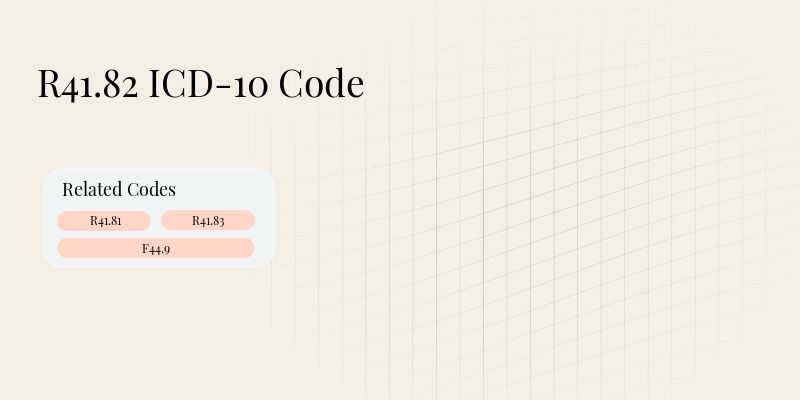
CO-231 Denial Code: Mutually Exclusive Same-Day Procedures

Key Takeaways
- What CO-231 Denial Code Covers: This code indicates that two procedures billed on the same day are mutually exclusive, meaning they cannot be performed together according to payer guidelines. Medical coders must understand which procedures are deemed mutually exclusive to prevent denials.
- Common Scenarios That Trigger It: Situations such as billing for both a diagnostic test and a subsequent treatment procedure on the same day can trigger this denial. It is essential to be aware of the specific combinations of services that are considered mutually exclusive.
- Who Should Address the Denial: Typically, the billing department or a dedicated claims specialist should address the CO-231 denial. These professionals are trained to navigate payer requirements and can determine the best course of action for resolution.
- Best Practice for Proper Use: Always verify payer guidelines for mutually exclusive procedures before billing. Using modifiers appropriately can sometimes allow for billing on the same day, but thorough documentation is key.
- Example of Actual Usage: A patient undergoes both a colonoscopy and a biopsy on the same day. If billed together without appropriate modifiers, the claim may be denied under CO-231 due to their mutually exclusive nature.
What is CO-231 Denial Code
The CO‑231 denial code signifies "Mutually Exclusive Same‑Day Procedures." It is issued by payers when two procedures are billed that cannot logically occur together, according to the payer's guidelines. This code is commonly triggered when services are not bundled appropriately or when the relationship between the procedures is not clearly justified.
This denial can significantly impact reimbursement, as claims may need to be refiled or appealed, leading to delayed payments. Understanding this code is crucial for medical coding professionals to ensure accurate billing and maintain cash flow for healthcare providers. Payers may have specific policies, so being familiar with these can help avoid denials upfront.
Common Reasons for Denial
Denial codes often reflect recurring process issues within billing practices. Understanding the root causes can help organizations refine their processes and reduce errors.
Root Cause | Description | How It Triggers CO-231 Denial Code | Suggested Fix |
|---|---|---|---|
Incorrect Procedure Pairing | Billing for procedures that cannot be performed together. | This pairing can trigger the denial code if deemed mutually exclusive. | Review payer guidelines and avoid billing incompatible procedures together. |
Lack of Documentation | Insufficient documentation to support both procedures. | Without proper documentation, payers may deny the claim for services performed on the same day. | Ensure complete and accurate documentation accompanies all claims. |
Improper Use of Modifiers | Failure to apply necessary modifiers when appropriate. | Not using modifiers can lead to claims being denied as mutually exclusive. | Educate staff on appropriate modifier application based on payer policies. |
Who Can Resolve CO-231 Denial Code?
Addressing the CO‑231 denial code requires the expertise of specific professionals within the healthcare organization. Here are the key roles involved:
- Revenue Cycle Manager: Oversees the billing process and ensures compliance with payer requirements.
- Billing Specialist: Responsible for submitting claims and handling initial denials, having a direct role in resolving issues.
- Medical Coder: Ensures correct coding and modifier application to prevent denials from occurring.
- Compliance Officer: Monitors adherence to regulations and helps educate staff on best practices for coding and billing.
How to Resolve CO-231 Denial Code
Resolving the CO‑231 denial code involves several steps to ensure claims are correctly submitted. Here are the recommended actions:
- Verify the Denial Reason: Call the payer to confirm the cause of the denial. E.g., Verified missing prior authorization with Cigna.
- Correct and Refile the Claim: Fix the identified error and submit the claim again. E.g., Added the required modifier and sent it via the clearinghouse.
- Submit an Appeal with Documentation: If the denial persists, submit an appeal with appropriate documentation. E.g., Attached treatment notes and a letter of medical necessity.
- Update Internal Processes: Make necessary adjustments to prevent future denials. E.g., Set an EHR reminder for pre-authorization for all sleep studies.
Financial Impact of CO-231 Denial Code
Potential Lost Revenue | Average Time to Resolve | Staff Hours Involved | Frequency by Payer Type |
|---|---|---|---|
$100-$500 per claim | 2-4 weeks | 3-5 hours | Varies: Higher with private insurers |
Disclaimer: Rates vary by payer, location, and claim complexity. We keep this article updated with industry averages.
Benefits of Proper Denial Management
Using effective denial management provides numerous advantages for healthcare organizations. Here are key benefits:
Benefit | Why It Matters | How It's Achieved |
|---|---|---|
Improved Cash Flow | Timely resolution of denials leads to faster payments. | Implementing efficient denial tracking and follow-up processes. |
Enhanced Staff Productivity | Reducing denials allows staff to focus on other revenue-generating tasks. | Training staff on coding and billing procedures to minimize errors. |
Increased Patient Satisfaction | Fewer billing issues lead to a better patient experience. | Effective communication and transparency regarding billing processes. |
Common Mistakes to Avoid with CO-231 Denial Code
Misuse of the CO‑231 denial code can lead to claim rejections, delayed payments, and potential audits. Here are some common mistakes to avoid:
- Ignoring Payer Guidelines: Not adhering to specific payer policies can lead to denials. For example, a coding specialist may submit a claim for a procedure without realizing it is considered mutually exclusive by the payer.
- Failure to Document Appropriately: Insufficient documentation can trigger denials. A healthcare provider might omit critical notes that justify the performance of both procedures on the same day.
- Neglecting Modifier Usage: Not applying modifiers can result in denials. A billing clerk may submit a claim for two services without using the appropriate modifiers to indicate they were performed together.
- Rushing Resubmissions: Quickly resubmitting denied claims without addressing the root cause can lead to repeated denials. A practice manager might instruct staff to resubmit without correcting the issues identified in the denial.
CO-231 Denial Code vs Other Denial Codes
Understanding how CO‑231 compares to other denial codes is beneficial for medical coding professionals. Here’s a comparison:
Denial Code | Meaning | Common Cause | Who Resolves It | Resolution Strategy |
|---|---|---|---|---|
CO-231 | Mutually Exclusive Same-Day Procedures | Billing incompatible procedures | Billing Specialist | Verify, correct, and refile |
CO-97 | Not Medically Necessary | Lack of clinical justification | Provider | Appeal with supportive documentation |
CO-50 | Not Covered | Services not included in the plan | Billing Specialist | Review plan details, appeal if needed |
Conclusion
The CO‑231 denial code serves as an important indicator of billing errors related to mutually exclusive procedures performed on the same day. By understanding the common triggers for this denial, such as incorrect procedure pairing and lack of documentation, medical coding professionals can better navigate the complexities of claims processing. Typically, billing specialists and revenue cycle managers are responsible for resolving these denials effectively.
To minimize the risk of encountering this denial code, it's essential to adhere to payer guidelines, apply appropriate modifiers, and ensure comprehensive documentation is maintained. By implementing these best practices, healthcare organizations can enhance their billing processes, leading to improved cash flow and overall operational efficiency.
Disclaimer: This article is for informational purposes only and does not constitute legal or medical advice. Always consult professional guidelines and regulatory bodies for specific compliance requirements.
Frequently Asked Questions
Reduce burnout,
improve patient care.
Join thousands of clinicians already using AI to become more efficient.

R41.82 ICD-10 Code: Altered mental status
Discover essential insights on the R41.82 ICD-10 Code code for health professionals. Enhance your practice and navigate billing with confidence.

CO-234 Denial Code: Procedure Not Separately Payable
Discover essential insights on the CO-234 Denial Code code for health professionals. Enhance your practice and navigate billing with confidence.

F32.A ICD-10 Code: Depression, Unspecified
Discover essential insights on the F32.A ICD-10 Code code for health professionals. Enhance your practice and navigate billing with confidence.
